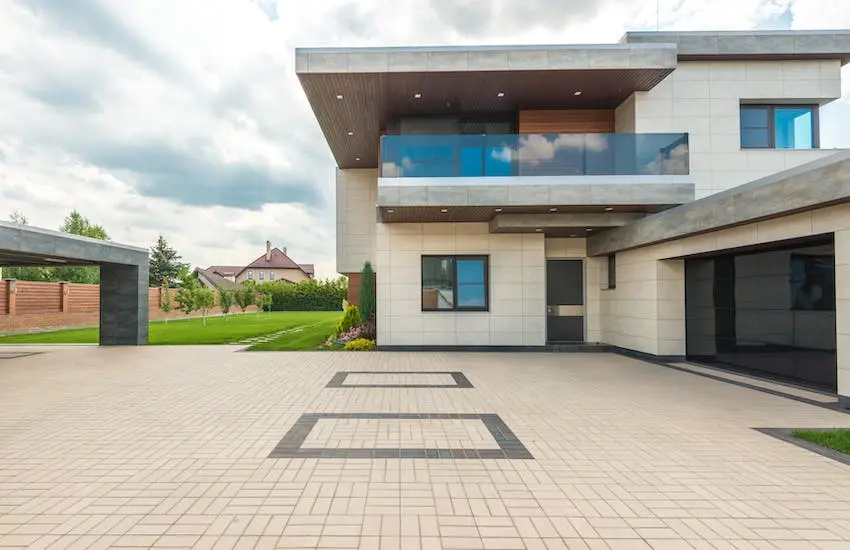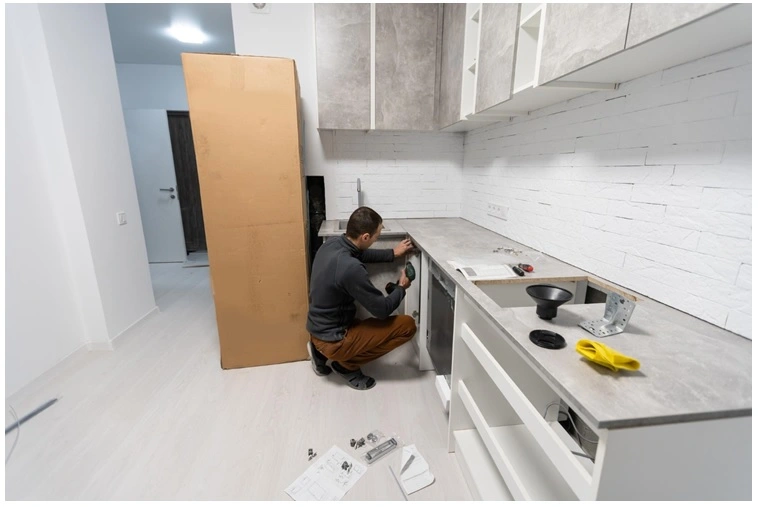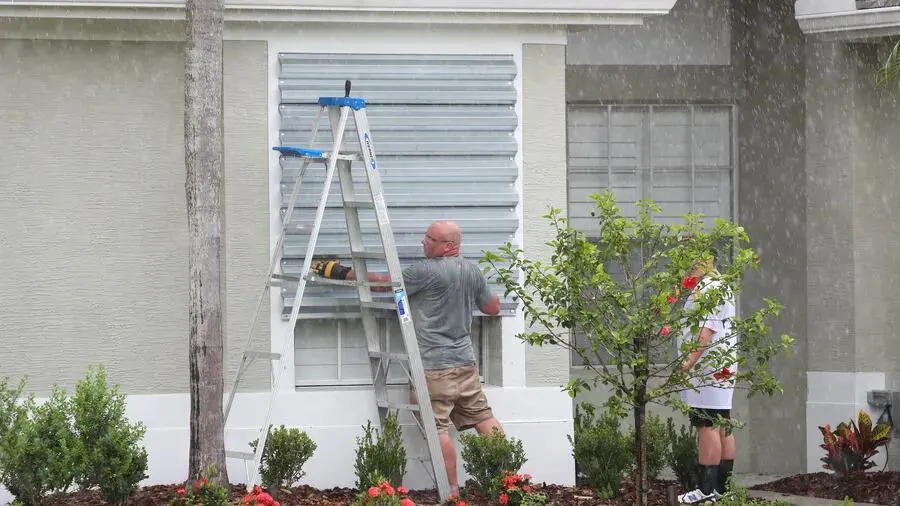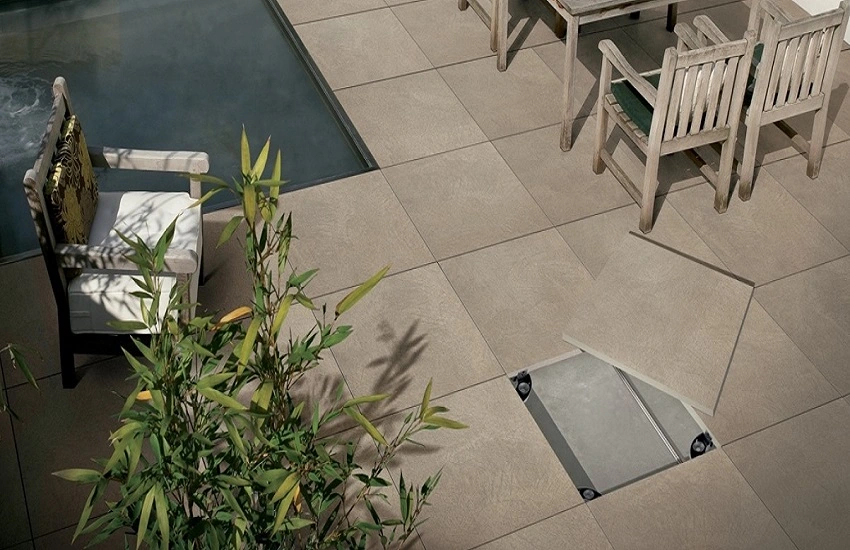Concrete driveways are the unsung heroes of modern property, providing a versatile addition that balances functionality with visual appeal.
Unlike gravel and pavers, concrete driveways are incredibly durable and easy to maintain.
Concrete is also more eco-friendly than asphalt, absorbing less heat and contributing to energy savings. Concrete is also highly customizable, allowing you to express your design preferences and compliment the architectural style of your home.
Durability
Concrete is a very durable material, and when well-installed with the proper base and reinforcement, concrete driveways can last 30 years or more without major repair.
It protects against heavy vehicles, extreme freezing and thawing cycles, and chemical exposures.
Pouring a new concrete driveway is best left to professionals who can excavate, prepare the forms, pour, and finish the surface quickly.
Homeowners brave enough to attempt the project can expect to spend a week or more on excavation, preparation, and a long day for pouring and finishing.
While concrete requires very little maintenance, it does require annual sealing to keep stains from oil and other fluids from showing.
Concrete can also crack occasionally, but this is usually cosmetic and not structural. Adding rebar to the concrete mix significantly increases durability.
This option can be discussed with a contractor before the work begins. It will increase costs slightly, but it will pay for itself in the driveway’s longevity.
Low Maintenance
Concrete is one of the most durable materials available for driveways, able to withstand heavy vehicles and harsh weather conditions. It also requires minimal repairs, saving homeowners time and money in the long run.
A concrete driveway can be aesthetically enhanced with color, patterns, and textures. The extremely versatile material can be poured and shaped to achieve different styles.
It can be stained, stenciled, and stamped to replicate the appearance of other materials.
Additionally, concrete can be used as an environmentally friendly paving solution. It requires less embodied energy than asphalt, as it is produced and placed using natural materials rather than petroleum resources.
Furthermore, its low maintenance requirements help reduce energy consumption over the surface’s lifespan.
This, coupled with its durability and increased property value, makes a concrete driveway an excellent choice for any homeowner.
Aesthetics
Concrete driveways are more than just a functional path to the home; they can be a visual extension of the style and personality of the house.
The driveway’s color, texture, and design can uplift the entire property’s aesthetic, increasing its value as an investment.
Concrete floors are a durable material that resists cracking and can last up to a century with proper maintenance. It’s also environmentally friendly, with most ingredients being natural materials that can be recycled or reused.
Unlike gravel, which can be displaced or lose color over time, concrete retains its color and appearance. It also offers more flexibility when designing a driveway, with many staining, texturing, and stamping options.
One of the most popular trends for 2023 is incorporating a stamped border into the driveway, which adds a pop of color and draws attention to the driveway’s edges.
The stamped border can complement or contrast with the color of the main driveway, and it can be designed to suit the style of the house.
Curb Appeal
Concrete driveways are modern, enhancing home landscaping plans and increasing property value. They are often cited as why homes sell faster than those with a different driveway material.
Concrete contractors can offer various colors, textures, and patterns. They can also add stamping, natural-looking stone patterns, exposed aggregate, or borders to create a unique and customized style.
Concrete can crack if subject to extreme temperature fluctuations, but properly designed expansion and control joints limit the appearance of random cracks.
A concrete surface is cooler and does not require as much energy to heat as asphalt. Plus, it reflects light rather than absorbs it, reducing energy costs for years. This makes a concrete driveway a smart choice for the environment as well.




